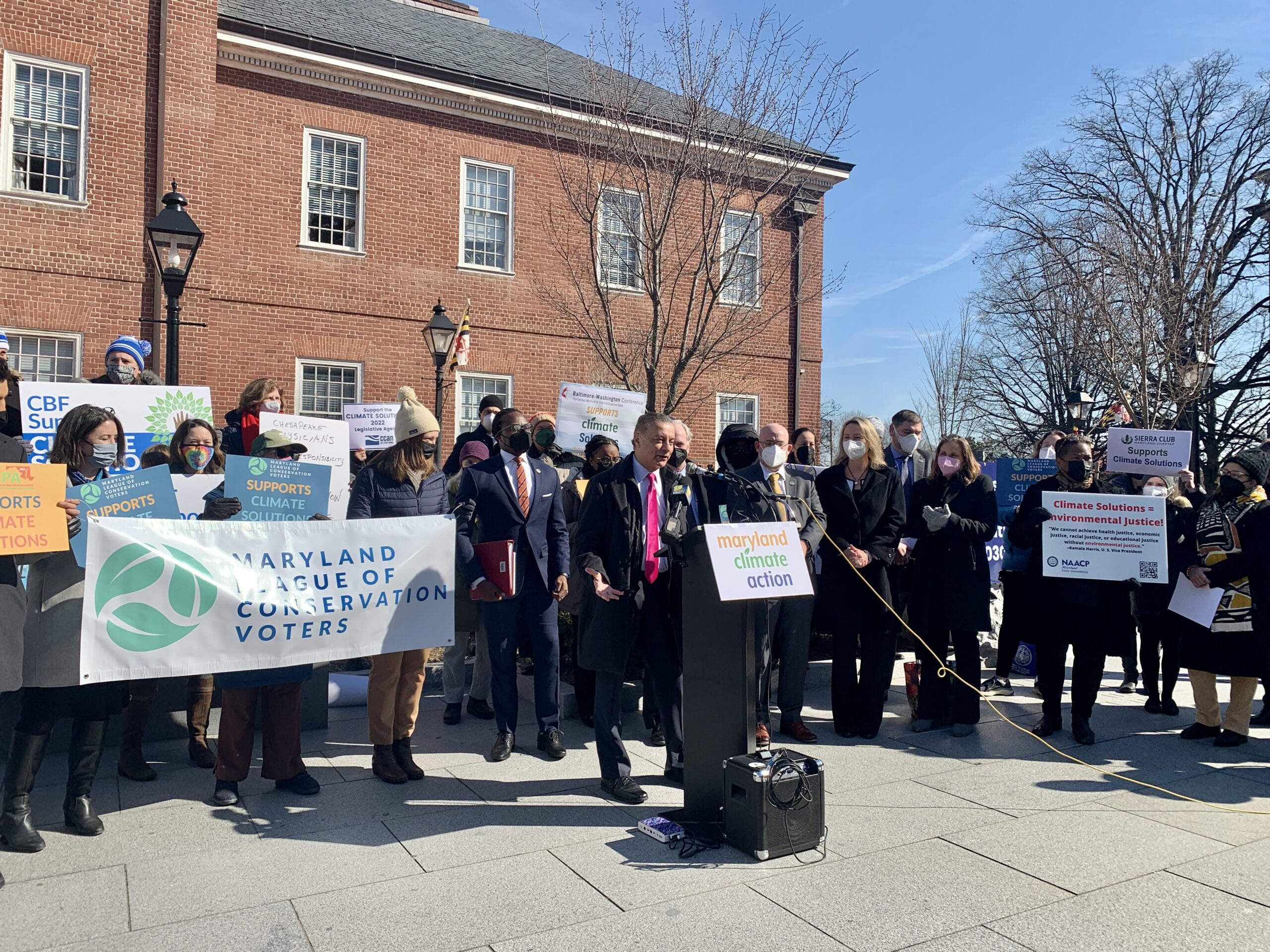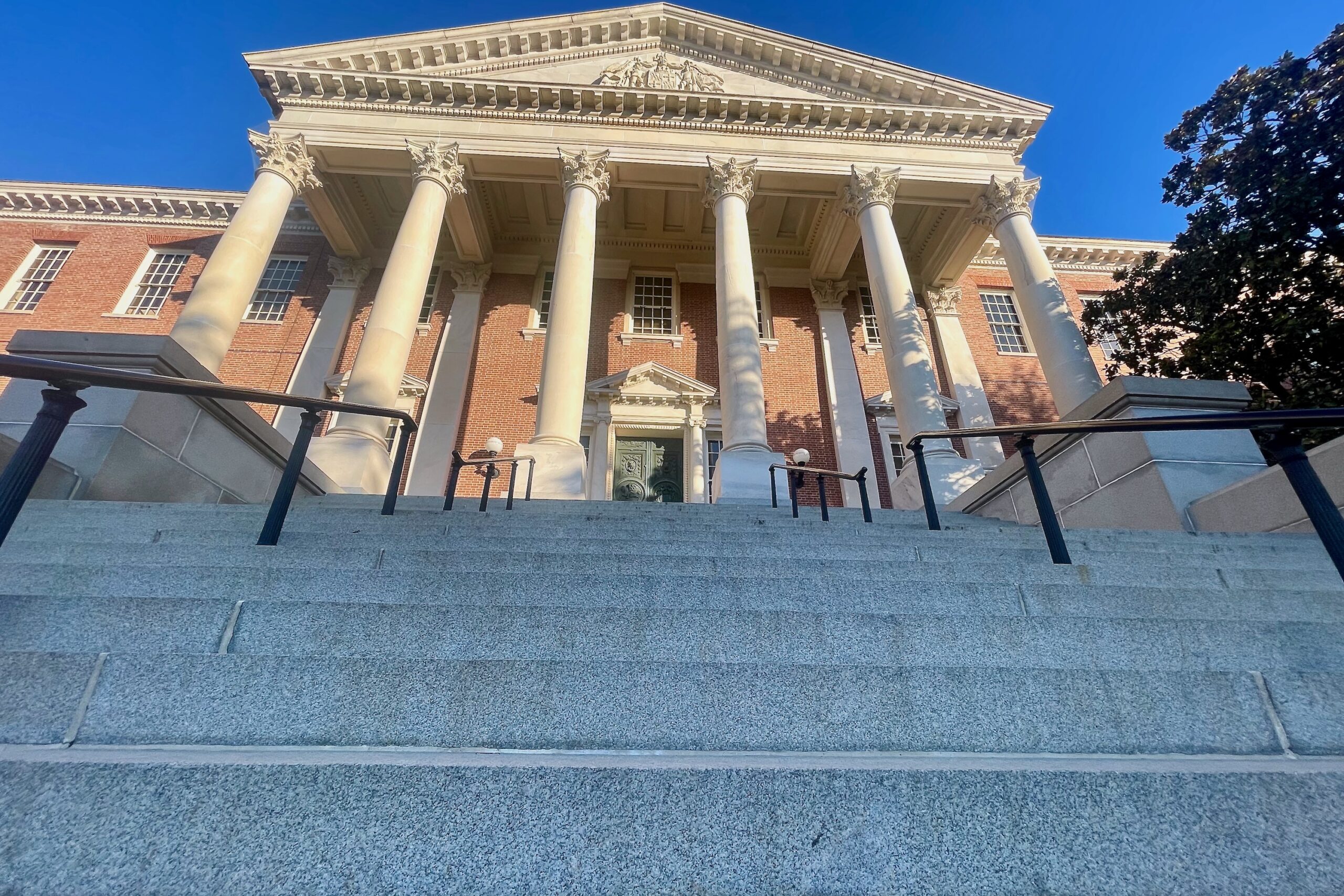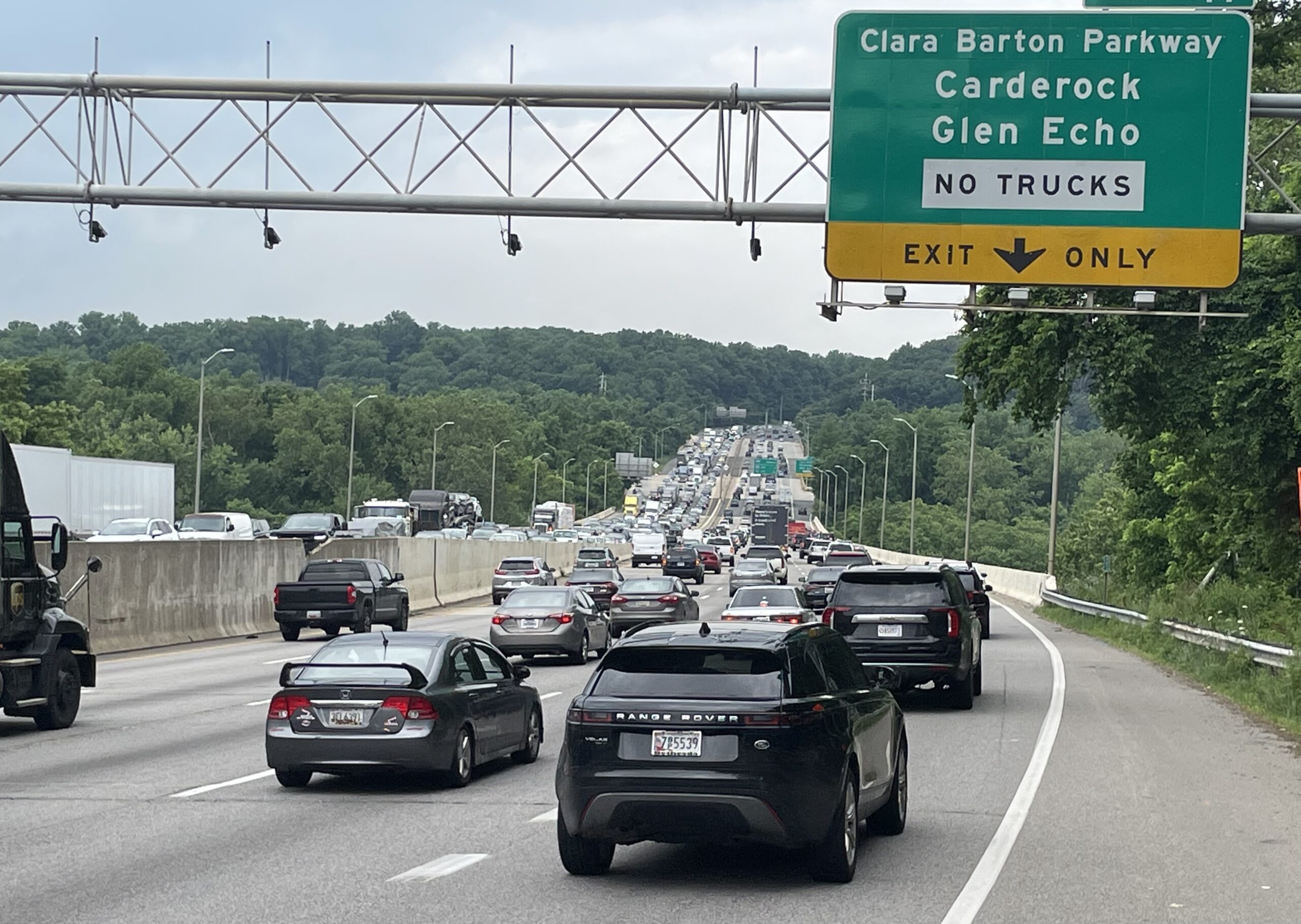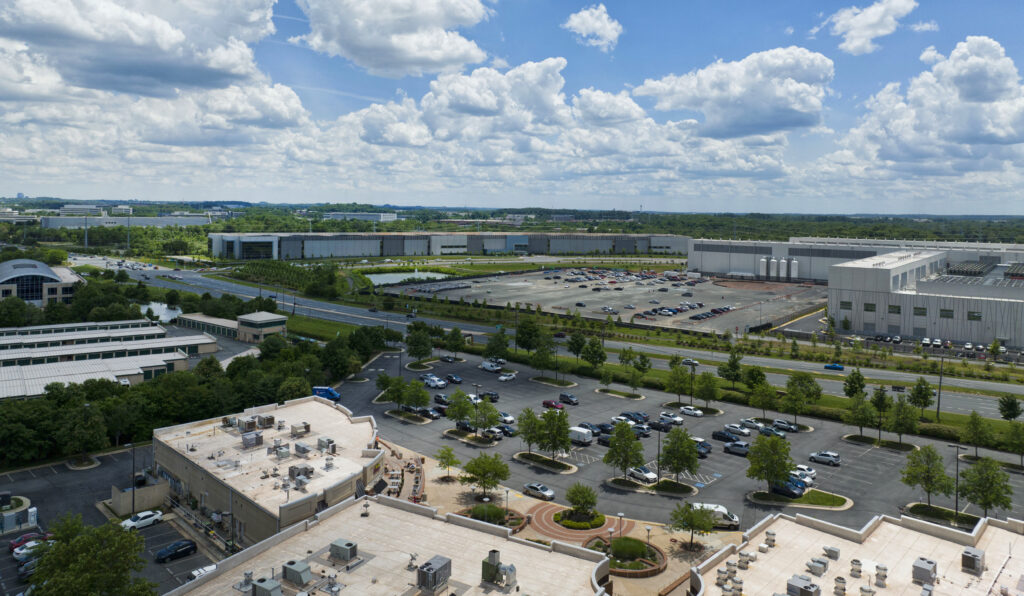Advocates Push to Retain Building Standards in Climate Legislation After Major Pushback

Following a slew of building industry groups, energy companies and restaurateurs testifying in both the House and Senate against a key provision of major climate change legislation, environmental advocates consolidated on Monday to push for the bill’s full provisions that impose strict emissions reduction standards on the building industry.
The Climate Solutions Now Act of 2022, and equivalent bills in the House, include measures that would require the state government to prepare building codes by 2024 designed to reduce carbon emissions in the building sector by requiring all new construction in the commercial and residential sectors to use electric power, rather than natural gas, to provide space and water heating. It also would require existing large buildings to reach net-zero carbon emissions by 2040.
The lead sponsors of the climate package are Sen. Paul G. Pinsky (D-Prince George’s) and Dels. Kumar P. Barve (D-Montgomery) and Dana M. Stein (D-Baltimore County).
Most of the opponents to the sweeping climate package have said that the bill’s timeline to electrify buildings is too fast and would significantly increase the demand on the state’s electric grid. But advocates say the bill offers flexibility for the building industry.
“There is a lot of misinformation coming out about this bill,” Kim Coble, the executive director of the Maryland League of Conservation Voters, said at a virtual news conference on Monday. She highlighted that the bill includes “off-ramps” for the building industry; for instance, new buildings would not be required to fully electrify if the cost of doing so is greater than the social cost of greenhouse gas emissions.
Proponents of the bill also stressed that the bipartisan Maryland Climate Change Commission voted 24-2 last fall to support strengthening green building standards in the state, specifically for the state to adopt an all-electric construction code and to develop a retrofit program.
“The policy wasn’t pulled out of a hat,” said Josh Tulkin, the director of the Maryland Sierra Club.
Although opponents have argued that they need more time to assess the impacts of the bill, advocates contended that they have had since last fall, when the Climate Change Commission’s report came out.
“The utilities were aware of this recommendation from the bipartisan commission on climate change — several of them voted for the recommendations to electrify,” Tulkin said. A representative from Pepco — a public utility owned by Exelon Corporation — voted in favor of the commission’s recommendations last fall but has since testified against the climate legislation.
Chris Parts, an architect at Hord Coplan Macht, a national firm with an office in Baltimore, said that housing developers are already expressing interest in electrifying buildings because it is safer for residents. “It’s being done now — it’s achievable,” he said.
Opponents have also raised concerns about the large cost of retrofitting buildings and are asking for financial incentives. The bill includes a task force that would make recommendations by the end of 2023 on what policies and incentives to put in place for the building industry to comply with the bill.
Although proponents said that they expect that there will be some compromise on the climate package this year, they strongly pushed for retaining the 60% greenhouse gas emissions reduction goal from 2006 levels by 2030, measures that require building retrofits and new buildings to electrify.
“We’re not going to get [to the 60% reduction goal] unless we reduce natural gas usage,” Coble said. Legislators “have to vote for both sides of the coin in order to get there.” Buildings account for around 40% of energy consumption in the nation.
After the Senate Education, Health and Environmental Affairs Committee began marking up the less controversial sections of the climate bill on Friday, Pinsky said the committee would come back to review more contentious amendments on Tuesday, including those on green buildings. But on Monday evening, Ian Ullman, Pinsky’s chief of staff, told Maryland Matters that the committee will probably consider amendments later in the week.




 Creative Commons Attribution
Creative Commons Attribution